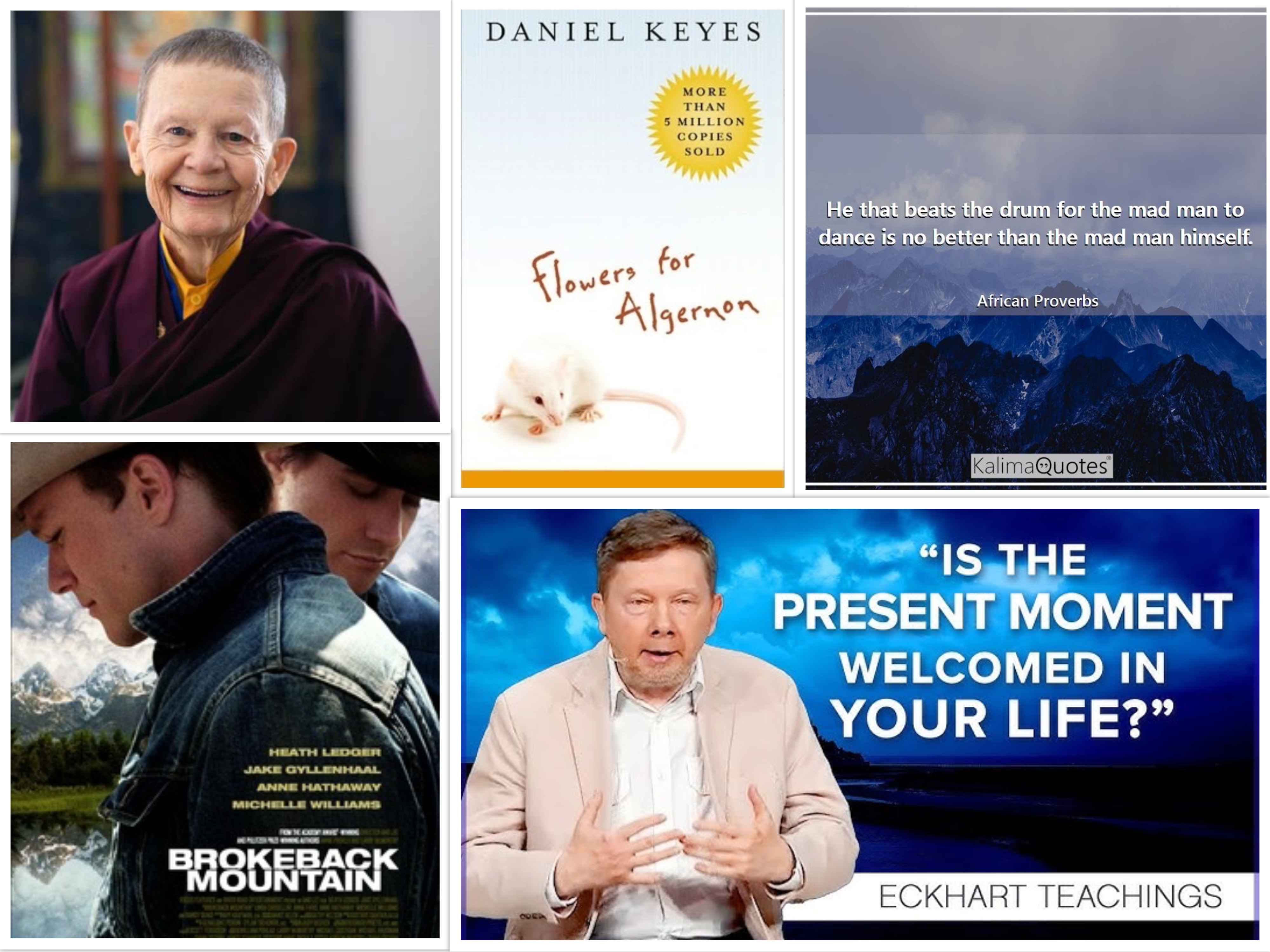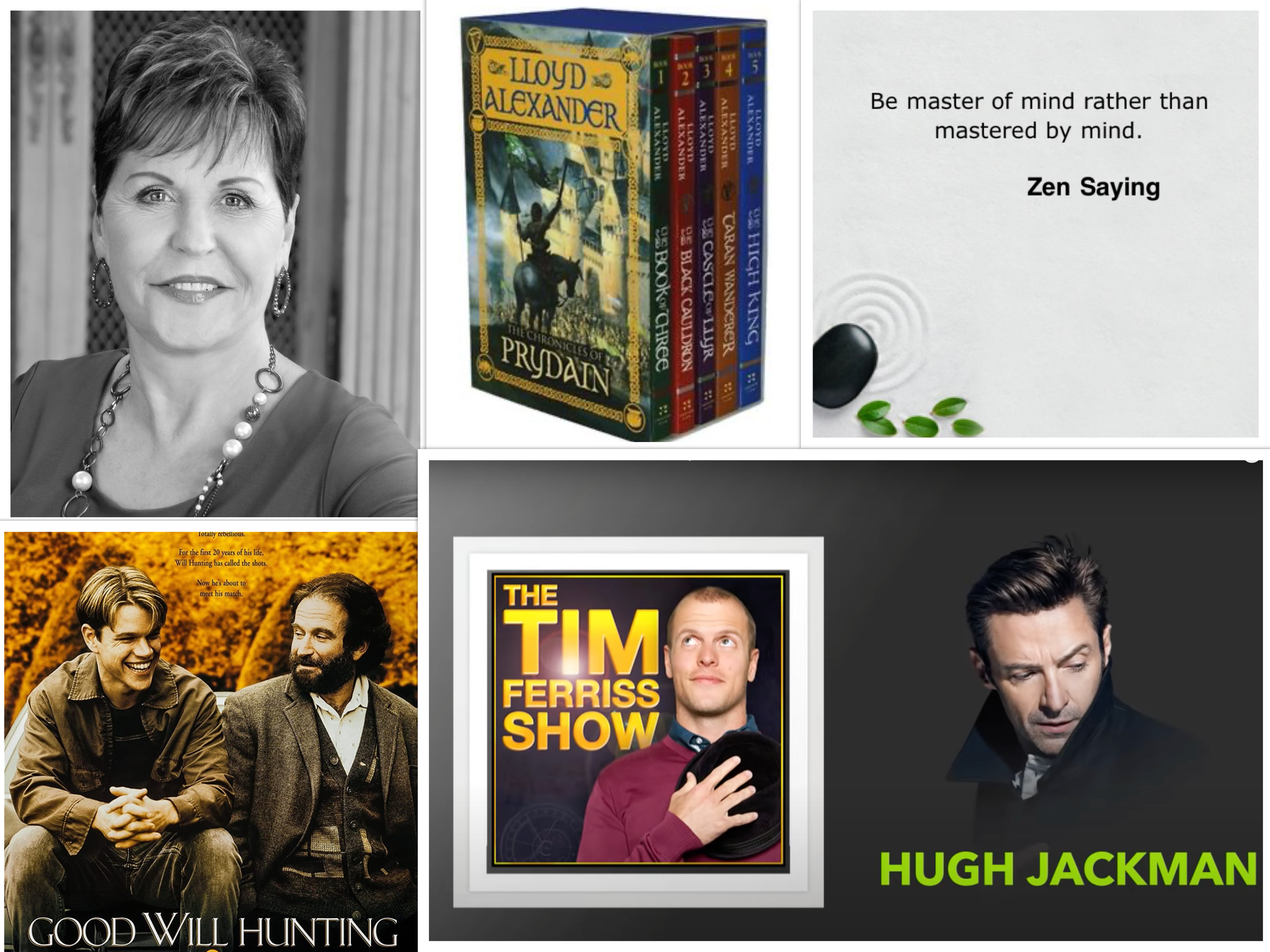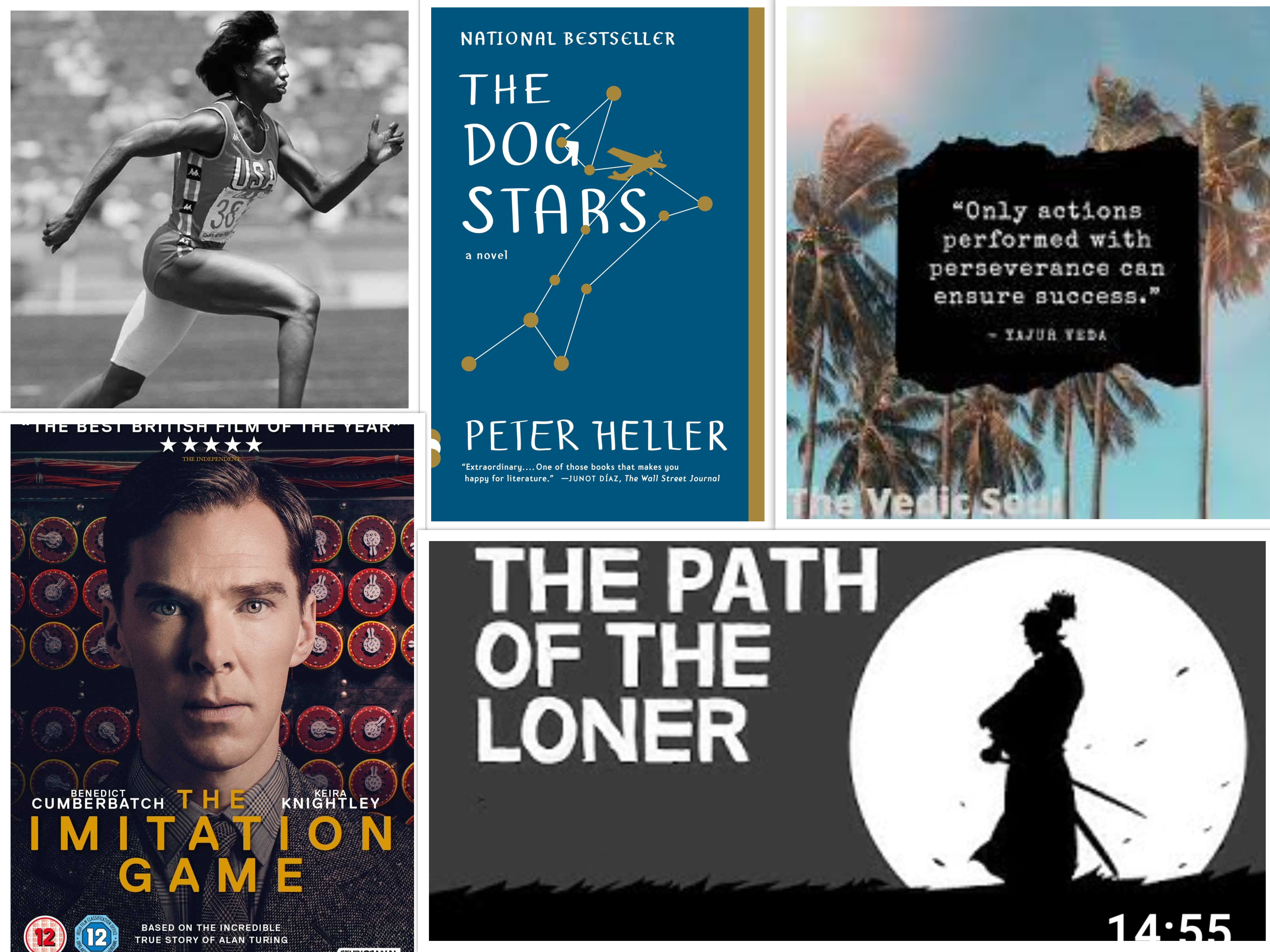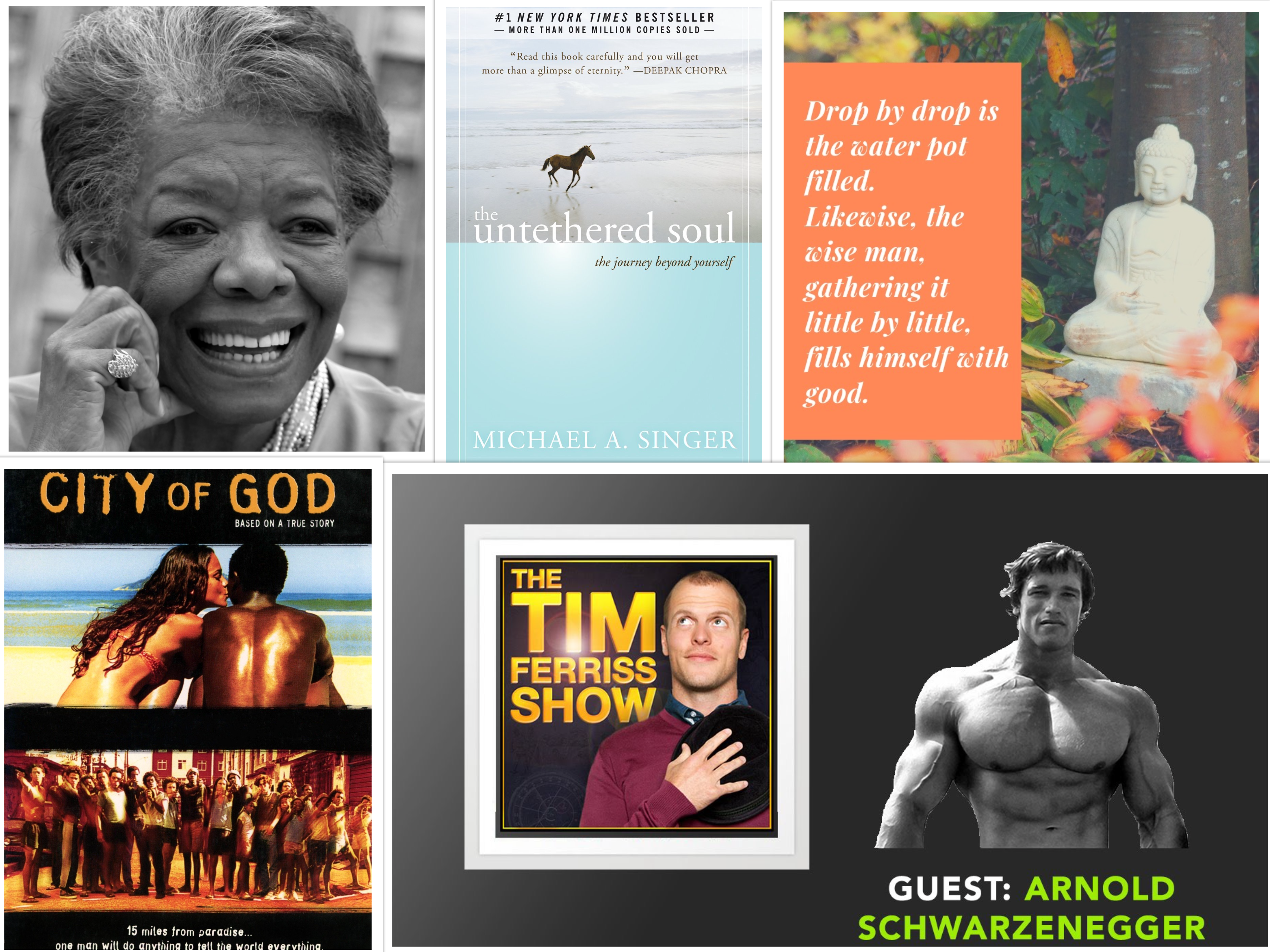Sunday Supplement #24 (October 24th, 2021)
Below is another Sunday Supplement with a quote worth sharing, a book worth reading, a movie worth watching, brainfood worth consuming, and a spiritual passage worth pondering.
I hope you take something away from these recommendations that enriches your week ahead!
Quote of the Week:
“You are the sky. Everything else is just the weather.”
– Pema Chödrön
Book of the Week:
Flowers for Algernon – Daniel Keyes
A mentally disabled man, Charlie, undergoes an experimental program that increases his intelligence. His journey mirrors and coincides with a test animal, a mouse called Algernon. The story is told through Charlie’s diary entries and focuses on how he perceives the world after the brain operation increases his IQ and begins to change his life. The procedure goes into uncharted territory as Charlie’s intelligence expands and surpasses the doctors behind the experiment. When Algernon starts to show signs of deterioration, Charlie fights to make sure the same doesn’t happen to him.
This short novel is one of the most heart-wrenching books I’ve read. Every high school student should have to read this before graduating. If it has slipped through the cracks in your life, I highly encourage you to check it out.
Charlie’s realizations of the world he lived in and how some people treated him before he knew their true motives is stirring. And the change in his character as his IQ grows paints a vivid image of hubris and arrogance. The themes of morality, love, cruelty, empathy, and intelligence vs. wisdom are powerful.
Flowers for Algernon is a sad read but one of the most important books I’ve read in my life.
Movie of the Week:
In the early 1960s, a ranch-hand and a rodeo cowboy develop a relationship when they take a seasonal job herding sheep on Brokeback Mountain. Hardships beset them as they navigate their lives in a time that doesn’t welcome their relationship. Marriage to their girlfriends furthers the complications for both the men and women. The movie beautifully depicts each character’s struggles and is a landmark in Cinema.
Ang Lee directed the stunning film and won Best Achievement in Directing, becoming the first Asian person to receive the award. Heath Ledger, Jake Gyllenhaal, and Michelle Williams all received nominations for acting. The movie won Best Writing – Adapted Screenplay (Larry McMurtry and Diana Ossana) and Best Achievement in Music Written for Motion Pictures – Original Score (Gustavo Santaolalla). It was also nominated for Best Achievement in Cinematography and was famously nominated but not the recipient of the award for Best Motion Picture of the Year.
Brokeback Mountain came out in 2005 when it still wasn’t a widely accepted part of life to show in film. The movie was often referred to as the “gay cowboy flick” and was the recipient of many cruel jokes. An attitude.co.uk article paid tribute to Heath Ledger’s response when asked what he would say to people who believed the movie’s gay themes to be disgusting. The question represented a point of view that wasn’t widely criticized at the time and was handled amazingly by Ledger.
There are many reasons why Brokeback Mountain is a brilliant film. And the impact it made on the times is one of its lasting legacies.
Brainfood of the Week:
Aligning with the Present Moment – Eckhart Tolle Teachings
I’ve highlighted Eckhart Tolle in two previous Brainfood of the Week posts, Sunday Supplement #7 and Sunday Supplement #18, but I still come across clips of his I think are worth sharing.
In this video, Tolle discusses becoming okay with the present. Many people have an antagonist relationship with the present moment, which causes a lot of unnecessary suffering and happiness. People can believe that a future moment is more important than the current moment. When this happens, you are never truly at home with the now; you are always looking forward to some other destination. And when there is little future left, some people turn to the past and think about previous moments.
Tolle states that one of the most important things in life is being aware of your relationship with the present moment. Is the now welcomed, appreciated, or accepted? A worthy goal is to have a harmonious relationship with the present moment. And coming to alignment with the present moment can bring about a shift in consciousness.
That is a brief summary of what Tolle talks about in the video. Check it out, and check out his other videos and writings if it calls to you.
Closing Spiritual Passage:
“He that beats the drum for the mad man to dance is not better than the madman himself.”
– African Proverb
This proverb reminds me of how we can be aware of others’ mental states but not always be empathetic. There can be someone who is upset or aggressive, and we make a judgment about who they are and how they are behaving. And at our worst, we can exacerbate the situation by provoking or laughing at that person. It might not be conscious, but this behavior can come up when us versus them mentality or an outsider is present. The African proverb provides a pulled-back perspective and shows us how we can be better.
In Sunday Supplement #10, I highlight David Foster Wallace’s “This Is Water” commencement speech. Wallace talks about how our certainties and judgments can be and often are totally wrong. At one point, he gives an example of someone cutting you off in traffic and our choice of how we respond. Most of the time, we don’t choose, and we just react. What if that person’s son or daughter is hurt, and the driver is just trying to help them as soon as possible? It might not be the case, but we have the option of how we view the situation.
These are reminders of how I can make my thoughts more conscious and what can happen if I choose not to practice that discipline.
Be aware of the music around you, choose how you dance, and have a blessed week ahead!
2 Comments



